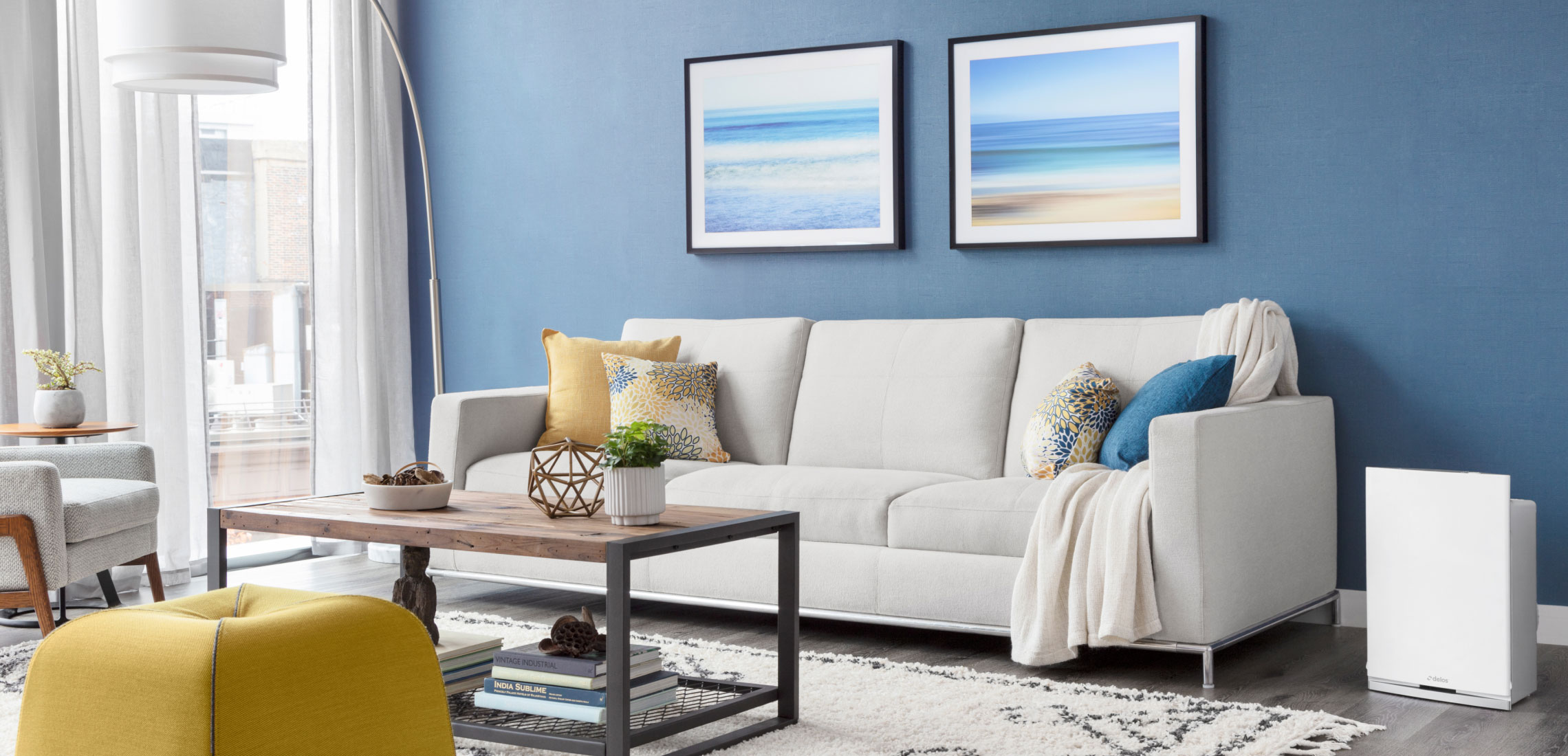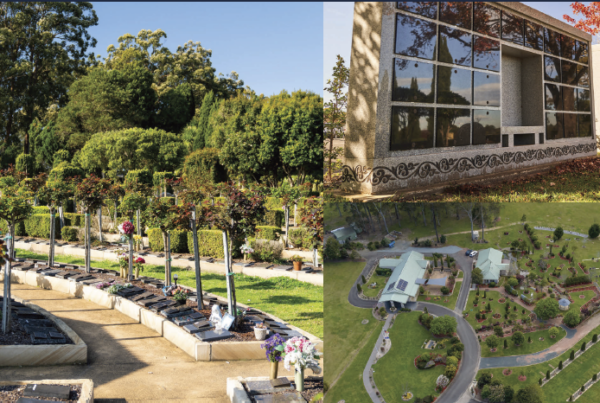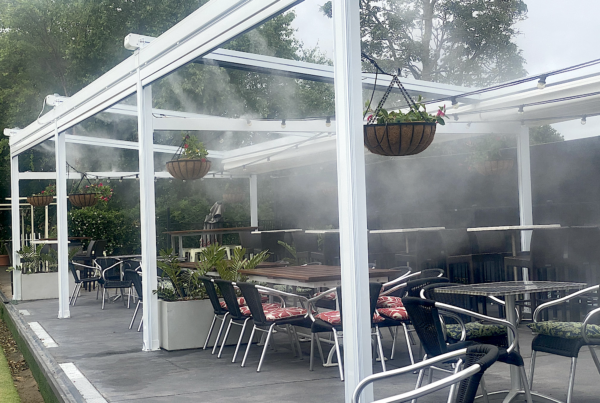While it is widely understood that behaviours such as smoking, poor dietary patterns and alcohol consumption are linked to poor health; the enormous impact of air quality on human health has only been recognised in recent years.
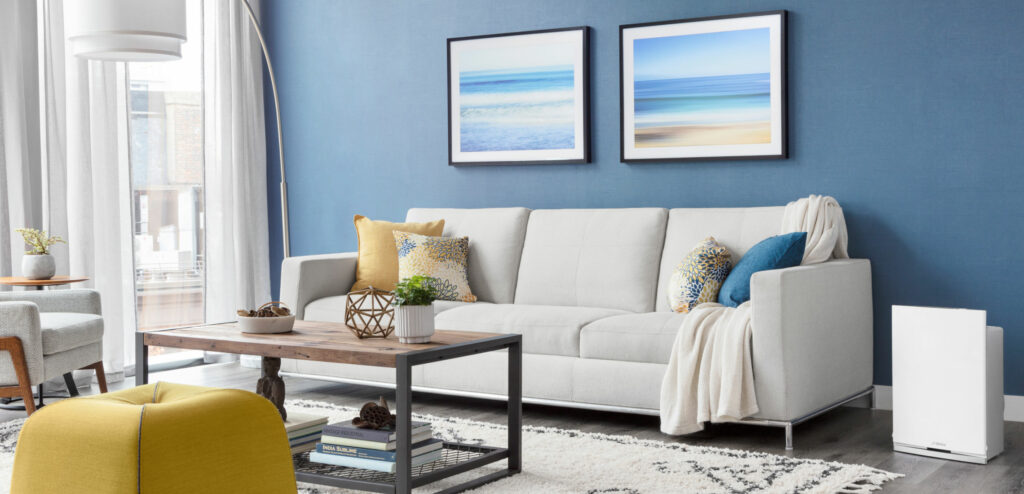
In 2019 alone, air pollution has been associated with nearly seven million deaths globally – more than alcohol use, malnutrition, physical inactivity and drug use combined. And while air pollution is preventable, it has gotten worse in many places worldwide over the last 20 years.
We often think of air pollution as an outdoors issue – something we should worry about while outside. However, that’s a common misconception, as the vast majority of our exposure to the most harmful outdoor air pollutants actually occurs indoors. Outdoor air gets inside through windows, doors and heating, ventilation and air conditioning (HVAC) systems, bringing outdoor pollutants into indoor spaces. That’s where most of our exposure to the most harmful particles – fine particulate matter (PM2.5) occurs — with over two thirds (67 per cent) occurring in our homes.
The COVID-19 pandemic has exposed just how prevalent poor air quality is in buildings across the globe – including aged care communities. Air quality affects all of us – but not to the same extent. Research shows that older adults are particularly susceptible to the health risks associated with poor air quality, due to the ageing body’s decreasing ability to compensate for the effects of environmental hazards. Indoor air quality (IAQ) can be two to five times worse than it is outside, and can aggravate existing chronic health conditions that are common among older adults such as heart disease, diabetes, asthma, lung and chronic obstructive pulmonary disease, in addition to negatively affecting cognition.
Older adults are also at an increased risk for exposure to SARS-CoV-2 (the virus that causes COVIC-19) due to age-related changes in immune function, and aged care communities have been particularly hard hit by the virus, for which transmission primarily is airborne.
Results from the Delos Consumer Insights Survey conducted in September 2021 support the increased awareness of IAQ within the general public. Of the 983 seniors and their families surveyed, 57 per cent reported feeling more negatively about the health and safety of aged care communities relative to before the pandemic. In addition, 62 per cent of respondents noted that the COVID-19 pandemic has made them more aware of the importance of ventilation and air filtration. Prospective aged care residents and their families were also likely to consider aged care community’s IAQ mitigation measures when deciding where to live, with 46 per cent of respondents saying that air purification measures were important factors or even a necessity in making a decision about where to live, and 63 per cent saying that they would likely or very likely choose one aged care community over another based on the community’s prioritisation of air purification. Given that more than 1.75 million Australians were using aged care services in 2020, and the usage of aged care is only expected to grow as the population ages, these sentiments are critical factors for aged care communities to consider and act on.


One respondent said that “Air quality is an important part of living, especially for the elderly and immunocompromised. Any company willing to go the extra mile and make air filtration/quality a priority will always get my respect and consideration before companies that choose not to make it a priority.”
Based on the results of Delos’ Consumer Insights survey, IAQ is a significant consideration for prospective residents. Indeed, older adults rated it as the third highest concern they had, behind quality of care and safety.
Given this, what should aged care community owners and operators do to create better environments for their residents, and to help them feel more confident about the health and safety of the community?
The need for cleaner air in aged care has never been more important, and the good news is that there are solutions available that have been extensively studied and shown to be effective.
Below are three strategies to help improve IAQ:
Install or improve existing HVAC systems.
Increasing the amount of outdoor air coming into the building, installing higher-rated in-duct MERV filters, and increasing the rate at which air within a space is replaced with filtered air (ACH) can help to effectively deliver cleaner air. Factors such as the cost of labour, system capacity, and potentially increased energy costs, should be taken into consideration before deciding to install new or upgrade existing HVAC systems. Delos Advanced Air Purification units are portable, do not require labour or installation into existing HVAC systems (and thus do not cause a pressure drop in the HVAC system), and simply need to be plugged in to operate.
Implement portable air purifiers.
Numerous portable air purifiers are able to effectively target indoor air pollutants such as particulate matter (PM2.5 and PM10) and volatile organic compounds (VOCs), and some have been tested to deactivate and trap airborne viruses and bacteria. Research has shown that the effects of cleaner air can have effects in as little as a few days: a study in residential settings found that the use of portable air purifiers for as little as three days reduced PM2.5 exposure and lowered systolic blood pressure in older adults living in urban settings. Delos Advanced Air Purifiers are capable of trapping and removing 99.99 per cent of particles 0.3 micrometres in size, which is more efficient than the HEPA Standard for filter efficiency requirement set by U.S. regulators.* In addition, they are equipped with adsorbent filters to remove harmful gases and odours**, and every device is individually tested by the manufacturer to ensure superior performance.
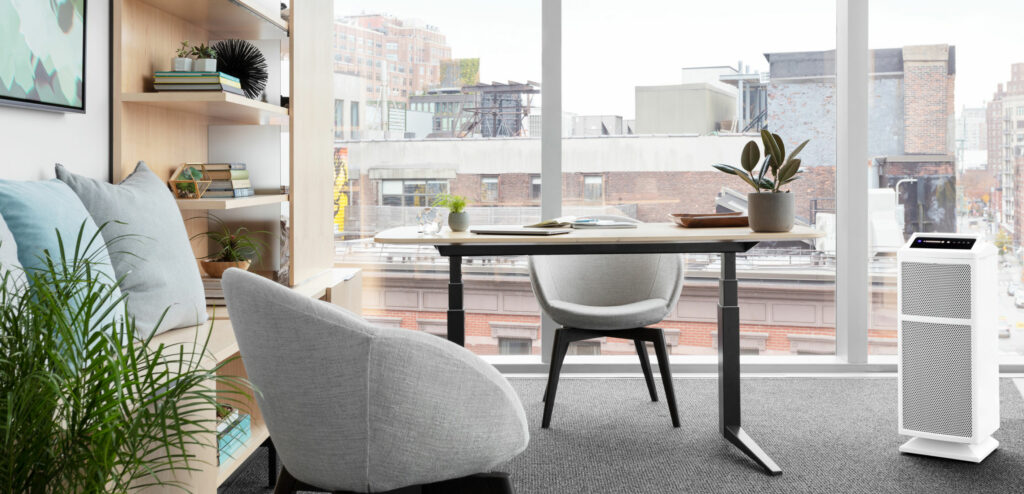
Utilise indoor air quality monitors.
It is usually not possible to see or feel whether IAQ is good, thus people are often unaware of IAQ issues in their environments.
IAQ monitors can help the owners and operators of aged care communities as well as their residents know what the IAQ is in real time. IAQ can also be leveraged to better control existing HVAC systems or portable air purification units and optimise air quality. IAQ sensor technologies have improved significantly in the past several years, and many low-cost consumer-grade sensors are available on the market.
IAQ has a significant impact on the physical and mental health of older adults, and is a considerable consumer concern that is unlikely to go away anytime soon. The COVID-19 pandemic has highlighted how important IAQ is, which the majority of the general public is now aware of. Now is the time to listen – and act on – the concerns that prospective aged care residents and their families have, and work towards raising consumer confidence and ensuring safer and healthier living environments. Fortunately, the strategies to help provide cleaner air indoors are relatively straightforward, backed by science and effective. Even when the COVID-19 pandemic ends, cleaner indoor air will continue to be more important than ever.

*Based on EN-1822 testing of the performance of the total device for the Compact unit and 468 unit. Testing on 950P unit pending as of the date hereof.
**For the 950P unit, requires purchase of an optional VOC filter.
